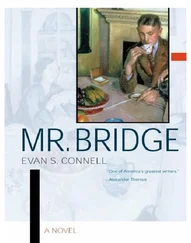She had never gone into politics the way some women did, though she listened attentively whenever such topics as the farm surplus or public works programs were discussed at luncheons or at circle meetings; she felt her lack of knowledge and wanted to improve herself, and she often resolved to buckle down to some serious studying. But so many things kept popping up, always at the very moment she was about to begin, and then too she did not know exactly where to start. Once in a while she would be on the point of questioning her husband, but, after thinking it over, she realized she would be asking silly questions, and he was so over-burdened with business problems that she did not want to distract him. Besides, there was not much she herself could accomplish.
This was how she defended herself to Mable Ong after having incautiously let slip the information that her husband always told her how to vote.
“Don’t you have a mind of your own?” Mabel demanded, and looked quite grim. “Great Scott, woman! Speak out! We’ve been emancipated!” She rocked back and forth, hands clasped behind her back, while she frowned at the carpet of the Auxiliary clubhouse.
“You’re right, of course,” Mrs, Bridge apologized, discreetly avoiding the stream of smoke from Mabel’s cigarette.
“But don’t you find it hard to know what to think? There’s so much scandal and fraud everywhere you turn, and 1 suppose the papers only print what they want us to know.” She hesitated, and then spoke out boldly. “How do you make up your mind?”
Mabel Ong, without removing the cigarette from her lips, considered the ceiling, the carpet, and squinted critically at a Degas print on the wall, as though debating how to answer such an ingenuous question, and finally she suggested that Mrs. Bridge might begin to grasp the fundamentals by a deliberate reading of certain books, the titles of which she jotted down on the margin of a tally card, Mrs. Bridge had not heard of any of these books except one, and this one because the author had committed suicide, but she decided to read it anyway.
The lady at her favorite rental library had never heard of the book, which was somehow gratifying; even so, having resolved to read it, Mrs. Bridge set out for the public library. Here, at last, she got it, and settled down to the deliberate reading Mabel had advised. The author’s name was Zokoloff, which certainly sounded threatening, and to be sure the first chapter dealt with bribery in the circuit courts.
When she had gotten far enough along to feel capable of discussing it she left it on the hall table; however Mr. Bridge did not even notice it until it had lain there for three days. She watched him pick it up, saw his nostrils flatten as he read the title, and then she waited nervously and excitedly. He opened the book, read a few sentences, grunted, and dropped the book on the table. This was disappointing. In fact, now that there was no danger involved, she had trouble finishing the book; she thought it would be better in a magazine digest. But eventually she did finish it and returned it to the library, saying with a slight air of sophistication, “I can’t honestly say I agree with it all, but he’s certainly well informed.**
Certain arguments of Zokoloff remained with her, and she found that the longer she thought about them the more penetrating and logical they became; surely it was time, as he insisted, for a change in government. She decided to vote liberal at the next election, and as time for it approached she became filled with such enthusiasm and with such great conviction and determination that she planned to discuss her new attitude with her husband. She became confident that she could persuade him to change his vote also. Politics were not mysterious after all. However, when she challenged him to discussion he did not seem especially interested; in fact he did not answer. He was studying a sheaf of legal papers and only glanced across at her with an annoyed expression. She let it go until the following evening when he was momentarily unoccupied, and this time he stared at her curiously, intently, as if probing her mind, and then all at once he snorted.
She really intended to force a discussion on election eve. She was going to quote from the book of Zokoloff. But he came home so late, so exhausted, that she had not the heart to upset him. She concluded it would be best to let him vote as he always had, and she would do as she herself wished; still, on getting to the polls, which were conveniently located in the country-club shopping district, she became doubtful and a little uneasy. And when the moment finally came she pulled the lever recording her wish for the world to remain as it was.
At one of the Auxiliary meetings a discussion arose as to whether it might not be a good idea to amend the constitution of the Auxiliary so as to include the words “under God.” Throughout this debate Grace Barron gazed out the window. Everyone else got up to say it was a good idea, except Mabel Ong being particularly severe in a tailored suit and a string tie who argued against it, and it was common knowledge that Mabel, being an intellectual, argued against the majority rather than against the question. So, late in the afternoon, the resolution was passed. Of fifty-six ladies present, fifty-four voted to include God. Mabel was against. Grace abstained; in fact when her name was called she jumped and said, “What?”
Mrs. Bridge wished it could have been unanimous; unanimity was so gratifying. Every time she heard or read about a unanimous vote she felt a surge of pride and was reminded, for some reason, of the Pilgrims. She enjoyed all kinds of oaths and pledges and took them regularly, remaining cautious only if her signature was required; signatures were binding, this she knew, and she was under the impression that they were often photographed, or forged, or whatever it was that unscrupulous persons did with signatures.
Oral resolutions, however, seemed quite safe and gave her a sense of participating, and she liked to discuss them. Often she could be heard urging ladies she scarcely knew to join with her and the others, saying, “It might help and it certainly can’t do any harm.”
43. Another Victim of Circumstances
Lois Montgomery was one of the most prominent members of the Auxiliary. Mrs. Bridge had known her for a good many years without regarding her in any way special until one afternoon when, not by accident, Mabel Ong let slip an allusion to the time when Lois had been raped. Mrs. Bridge’s pleasantly neutral expression did not change, just as though she knew all about the case, or at least had had a good deal of experience with that sort of thing, but afterward she found out more. Lois Montgomery was now a tall, stately eagle of a woman with a deep snowy breast and rather overwhelming perfume. She wore her black hair in a huge ballerina knot, lacquered, through tiny cracks of which could be seen a tight roll of false brown hair. Mrs. Bridge would not have considered her the sort of person a sex maniac would attack, and yet the story, so far as she could ascertain, was true. It had taken place years ago when the Montgomerys were living in Butte, Montana, where Stuart had some kind of position with the railroad. How the story followed them from Butte to Kansas City so many years later there was no means of discovering.
Mrs. Bridge visualized the scene: Lois In her Fifth Avenue suit and silver fox boa striding imperially down a dark Montana street with the Canadian wind howling, and then the man rising from behind a bush, or stepping quickly around a tree he was dressed In a shabby suit with the collar turned up, and he had not shaved, or he could have been wearing a leather jacket and a mask, a stocking cap perhaps. She tried to Imagine Lois struggling with him in the darkness, shrieking for help; she wondered if the man had choked Lois with the silver fox boa. Afterward there was the ruined woman collapsed on the sidewalk and the man running away. Later she was lying in a hospital bed, having been given a sedative, and there were police lieutenants in their ill-fitting serge suits asking her embarrassing questions. After that there were relatives and friends who entered with flowers. The scene always ended in the hospital when the room was full of flowers and Mrs. Montgomery’s perfume.
Читать дальше












